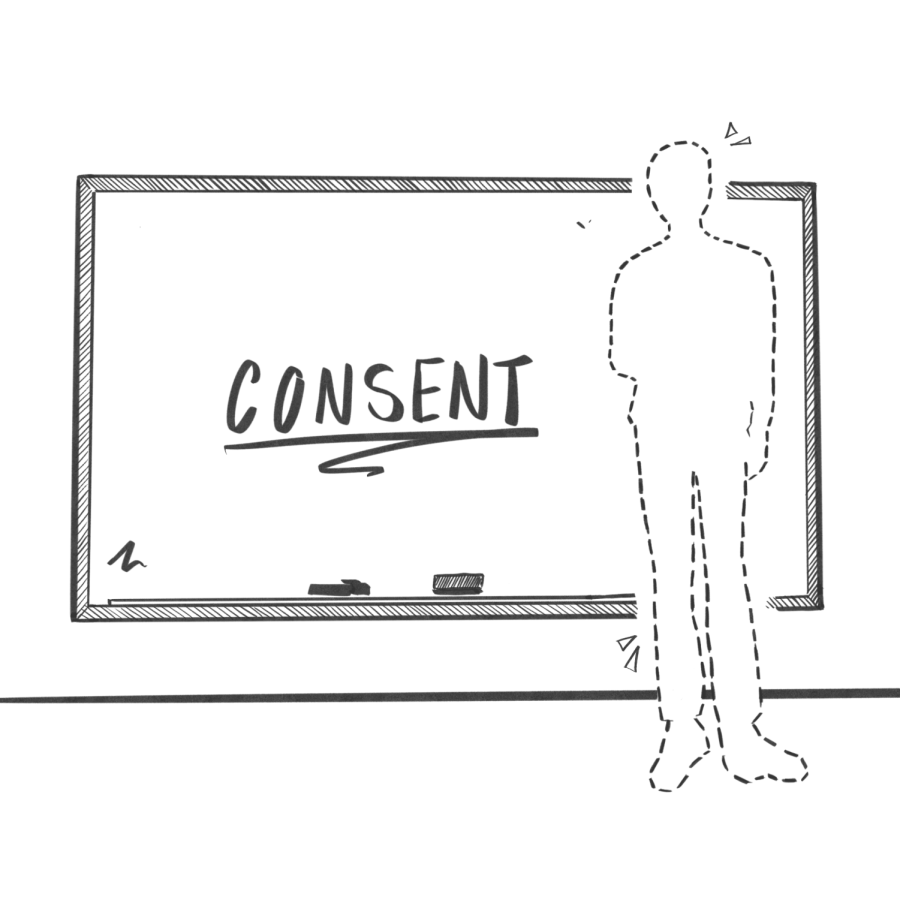We Need More Male Facilitators in Consent Workshops
November 8, 2022
On September 28th, nearly 60 CRLS students taught 22 consent workshops for the 9th grade history and ELA classes. Yet, only about a quarter of these peer leaders were male. This underrepresentation means that younger boys don’t have strong role models for consent, posing a key challenge to consent education at CRLS.
Consent Workshops club leader Cherace Lin ’23 tells the Register Forum, “[The lack of male facilitators] definitely sends the message that a) only women care about or should care about consent, which is not the case at all and b) it makes everyone who’s not a woman uncomfortable with a lack of that representation. It’s simply true that if people don’t see themselves represented in who they’re seeing or learning from, they just won’t connect, relate to, or engage as well as they could have.” This holds special relevance considering that men are the main perpetrators of sexual violence, though the victim can be any gender. A 2010 study from the Center for Disease Control found that 98.1% of female rape victims and 93.3% of male rape victims reported male assaulters. Young boys usually adopt aspects of toxic masculinity, such as disrespect or aggression, when they instead need to learn to practice consent throughout their lives.
According to the Australian Association for Research in Education, research shows that male educators can demonstrate positive masculinity for students, and personal experience corroborates this. Emile Sater ’23, a CRLS consent workshops facilitator, reflects to the Register Forum, “[Male students] believe that we were once in their shoes … so they have someone to trust, kind of like an older role model to look to.” Daniel Hargrove ’23, another facilitator, agrees. “In my experience, male students definitely react differently to male facilitators.”
However, this does not mean that the club should lower its standards for student teachers to recruit more men. Lin comments, “It must be a delicate balance between quality and quantity because of course we want as many guys as possible … but giving that responsibility to just anyone would be dangerous.” The facilitators should reflect other aspects of diversity, including race, ethnicity, and LGBTQ+ identities.
With more consent workshops this year and beyond, there exist a few key strategies to achieve gender parity among the facilitators. Lin shares, “Thus far, encouraging male friends of students who are already involved to become trained facilitators has been the most effective strategy … [we can also] take note of freshmen who engage well with the material in the workshops. As well, students in positions of influence will hopefully be more outspoken about promoting the importance of this education.” Consent Workshops advisor Ms. Berz proposed “A structure where there’s a lead facilitator and someone who’s working up to being a lead facilitator, so that we can train more people who are more representative and inclusive of our school community, especially boys.” Sater and Hargrove suggested publicizing facilitation opportunities more and emphasizing the value of male voices.
As consent education continues to grow, we must make sure to increase male leadership. The responsibility of creating a culture of consent—and of gender liberation in general—belongs to everyone.
This piece also appears in our October 2022 print edition.










